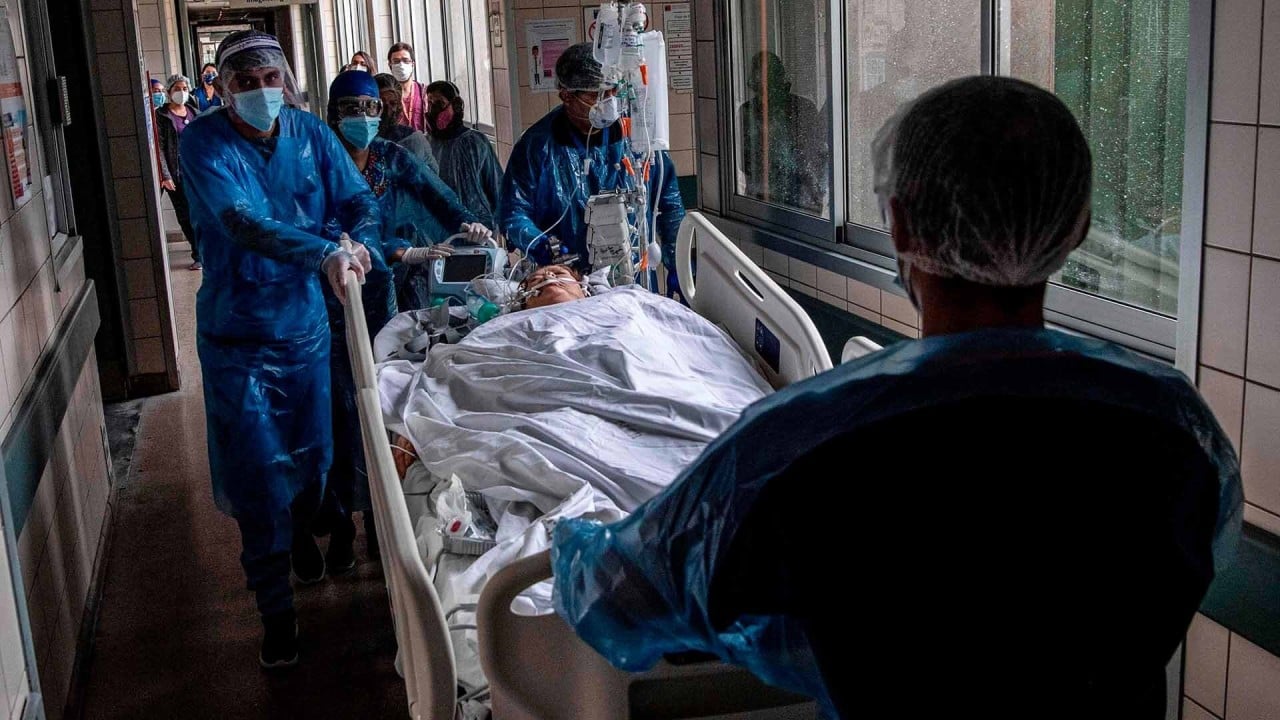
Coronavirus may have a weak point – and hand washing, face masks ‘may help block transmission chain’, study says
- Chinese non-peer reviewed paper suggests virus has a narrow bottleneck, meaning the number of particles passed on from a host to others
- Scientists did genetic sequencing on viral strains from 13 patients in Guangdong province to reconstruct how it spread
That would be considered a narrow transmission bottleneck – meaning the number of virus particles that can be transmitted from someone who is infected to other people.
“Only a few virions [entire virus particles] successfully enter host cells and eventually cause infection,” the researchers, led by Xu Yonghao, from the National Clinical Research Centre for Respiratory Disease in Guangzhou, wrote in a non-peer reviewed paper posted on bioRxiv.org on Friday.
This would suggest that hand hygiene and wearing face masks were effective ways to stop transmission of the virus, said the paper, co-authored by top Chinese respiratory expert Zhong Nanshan.
Sars-CoV-2, the new coronavirus that causes Covid-19, uses ribonucleic acid, or RNA, produced by the body to store its genetic information. RNA can produce proteins at a rapid rate, but its single-stranded structure makes it less stable than double-stranded DNA, or deoxyribonucleic acid.
That means the virus can mutate at a relatively fast pace – so as the coronavirus spreads in a host from organ to organ, the viral genes are constantly changing.

02:45
Global Covid-19 death toll hits 500,000 as coronavirus infections surge past 10 million
For the study, Xu and his team worked with Shenzhen-based genome research company BGI. They conducted in-depth sequencing on viral strains found in 13 patients, including four from two families, in Guangdong province, analysing their genetic diversity.
By comparing the difference in the genetic data, the scientists were able to reconstruct how the virus had spread from one person to another within the same household. Based on their modelling, the transmission bottleneck was estimated to be six virions in one of the families, and eight in the other.
The scientists also found that most of the mutations were lost when the virus was passed on.
But according to the study, most of the viral strains found in the first host of the two families were not passed on to the next person. Some could also have been fought off by the immune system of the infected person, they said.
This may point to a potential weakness in how the virus is transmitted, according to the researchers, and that is where hand sanitiser and protective face masks could help.
“Instant hand hygiene and mask-wearing might be particularly effective in blocking the transmission chain,” they said.

05:26
Coronavirus spread would dramatically drop if 80% of a population wore masks, AI researcher says
Zhang Shuye, a principal investigator with the Shanghai Public Health Clinical Centre at Fudan University, who was not involved in the study, said there was strong evidence to support the use of face masks to control the spread of the virus.
But he said this would be less effective in a household where someone was confirmed or suspected to be infected, saying it would be better for them to be isolated elsewhere.
Coronavirus: face masks save lives, Japanese study says
He also cautioned that it was still not certain whether the transmission bottleneck was as narrow as the study suggested, but said “there is little doubt that the virus is highly contagious”.

